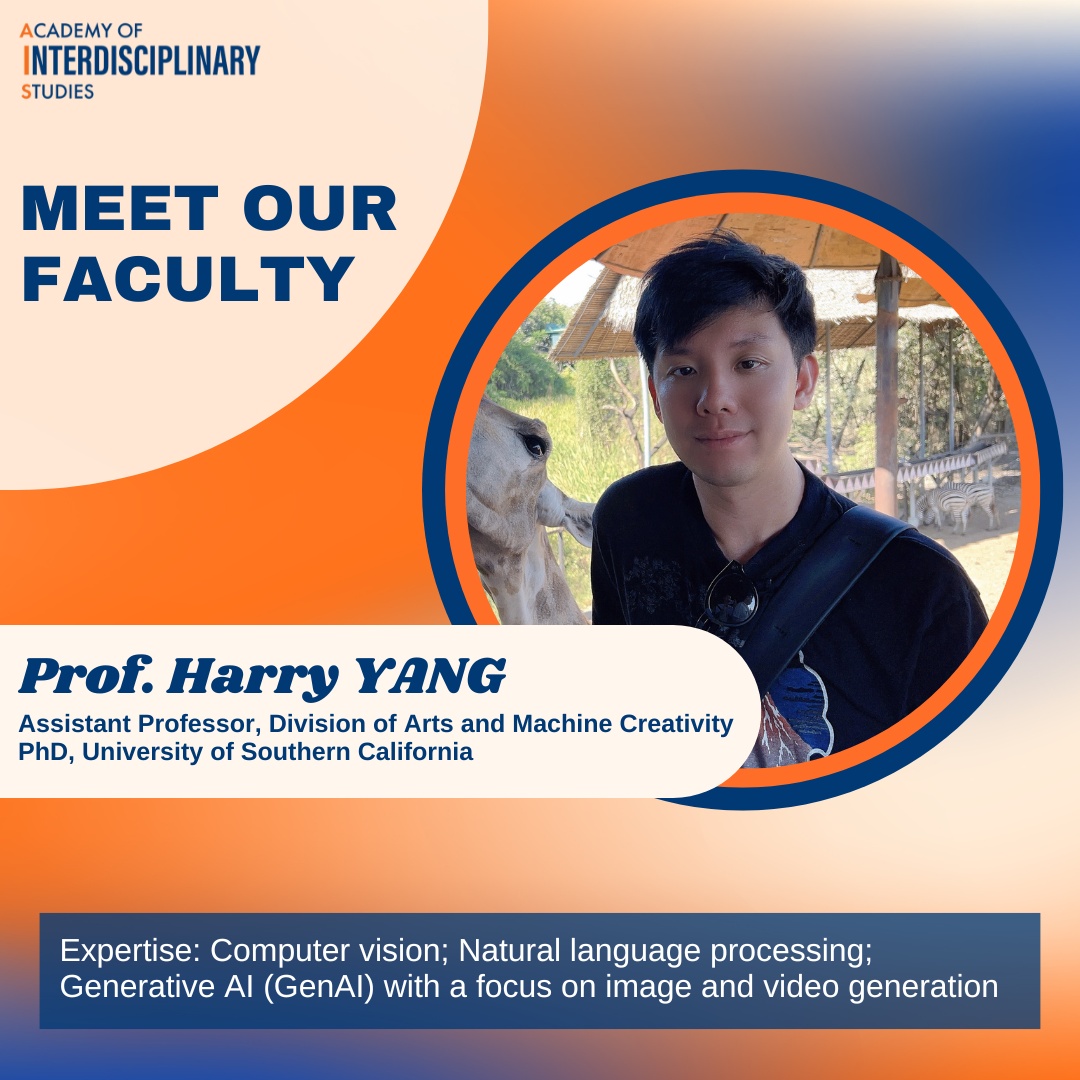Step into the innovative world of AI and creative technology with Prof. Harry YANG, Assistant Professor of the Division of Arts and Machine Creativity (AMC). From developing cutting-edge AI systems at Meta to pioneering research in Generative AI and embodied intelligence, Prof. YANG brings a wealth of experience and fresh perspectives to the intersection of artificial intelligence and creative expression.
Read on to learn more about Prof. YANG’s passion about democratizing digital content creation and fostering human-AI collaboration and how he is set to shape the future of interactive technologies while inspiring the next generation of AI innovators!
-----
Could you tell us more about yourself?
I grew up in Hunan, China, and my academic journey has taken me across continents. After completing my studies in the United States, I had the opportunity to work at Meta, where I was deeply involved in cutting-edge AI research. I joined HKUST because it is a globally recognized institution with a vibrant academic community and a stunning campus. The opportunity to work with talented students and engage in high-impact research here is truly exciting. Currently, my research focuses on Generative AI (GenAI) and embodied AI, particularly in the context of creativity and human interaction. This Fall, I will be teaching the course "AI-Driven Animation and Video Generation" (EMIA6500G), which delves into the latest advancements in AI models for animation and video, aiming to equip students with both theoretical knowledge and practical skills in this emerging field.
What inspired you to specialize in this line of research?
My interest in this field was sparked by the incredible potential of AI to revolutionize the way we create and interact with digital content. Generative AI, in particular, has the power to democratize creativity, enabling individuals and organizations to produce high-quality content with unprecedented ease and efficiency. I see AI as the future, not just in terms of technological advancement but also in its ability to empower people in various domains. The prospect of developing AI systems that can collaborate with humans to enhance creativity and innovation is what drives me. This research area is not only intellectually stimulating but also offers vast potential for societal impact.
What impact do you want your work to have on society?
I aspire for my work to significantly contribute to the integration of AI into creative industries, enhancing how we produce and interact with digital content. By advancing Generative AI and embodied AI technologies, I hope to enable more personalized and interactive experiences, making digital content creation more accessible to everyone. Moreover, I envision AI playing a pivotal role in embodied agent control, where AI systems can interact with and respond to humans in more natural and meaningful ways. Ultimately, I want my research to bridge the gap between humans and machines, fostering a future where AI enhances rather than replaces human creativity.
Do you have any advice for students interested in your research area?
For students interested in pursuing research in AI, particularly in areas like Generative AI and embodied AI, I would advise them to build a strong foundation in the fundamentals. Understanding core concepts in machine learning, computer vision, and natural language processing is essential. Staying updated on the latest research and breakthroughs is equally important, as the field is rapidly evolving. Most importantly, cultivate a genuine curiosity and passion for the subject. Research can be challenging, but it should also be enjoyable. Engage with the material, experiment with new ideas, and have fun with the process. This combination of knowledge, curiosity, and enjoyment will drive success in this dynamic field.
Could you share a fun fact about yourself?
I have a passion for outdoor activities, particularly hiking and swimming. One of my favorite spots on the HKUST campus is the swimming pool, which offers not just a great place to exercise but also a stunning view of the surrounding scenery. It's a perfect way to unwind after a day of research and teaching, and it helps me stay energized and focused on my work.





